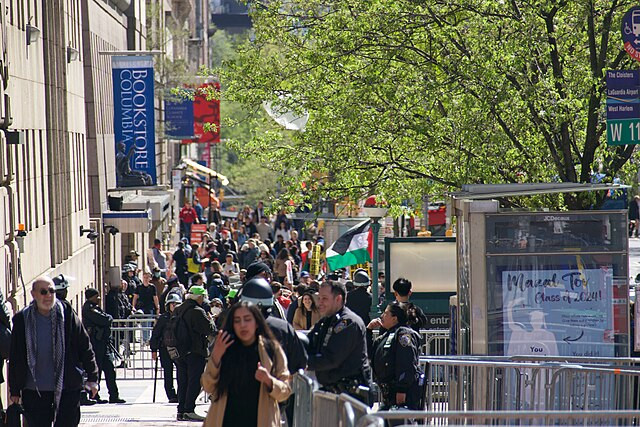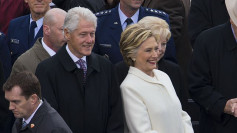Columbia University recently became the epicenter of a heated controversy when Charlotte Kates, the international coordinator of Samidoun: Palestinian Prisoner Solidarity Network, delivered a provocative lecture that has sparked widespread discussions and protests on campus. Speaking alongside her husband, Khaled Barakat, Kates endorsed the actions of Hamas during a seminar titled "Resistance 101," organized by the Columbia University Apartheid Divest Group.
During the two-hour session aimed at a group of fervent anti-Israel activists from Columbia and its sister college Barnard, Kates stated, "These are the people who are on the front lines defending Palestine and fighting for its liberation," openly supporting the activities of Hamas, a group designated as a terrorist organization by multiple countries, including the United States, according to NY Post. This statement came weeks before the campus was rocked by large-scale pro-Palestinian protests.
Barakat, identified as a senior member of the Popular Front for the Liberation of Palestine (PFLP)-another designated terrorist organization-echoed Kates' sentiments. He emphasized the importance of demonstrations in New York to the Gaza resistance, disparaging mainstream media coverage and urging continued activism.
The session, which did not shy away from controversial statements, also saw Barakat compare Israeli actions to those of Nazis, a comment that had previously led to his ban from Germany in 2020. This rhetoric has raised serious concerns about the escalation of campus tensions and the safety of Jewish students, many of whom reported feeling unsafe amid the growing unrest.
The university's response to the event has been under scrutiny. Initially, Columbia declined to authorize the "Resistance 101" seminar at the Barnard Center for Research on Women, leading to administrative actions against some organizers for holding an unauthorized event. Reports vary, but it appears that several students faced suspensions, which were later lifted for some.
The background of the speakers is particularly noteworthy. Kates, an American lawyer and vocal advocate for Palestinian rights, has previously praised Hamas' military actions as "pivotal moments." Her partner, Barakat, has been involved in various capacities with groups that have engaged in violent acts against Israeli targets.
This incident at Columbia is part of a broader pattern of heightened tensions on college campuses across the U.S., where discussions about Israel and Palestine are increasingly intersecting with broader debates about free speech, safety, and the role of universities in managing campus conflict.
The event has not only affected the students and faculty but also resonated through their families and broader networks. For instance, one of the suspended students, Aidan Parisi, is linked through family to significant positions within the U.S. government, illustrating the complex and often personal nature of these campus debates.





